'Eyesight video game offers my daughter hope'
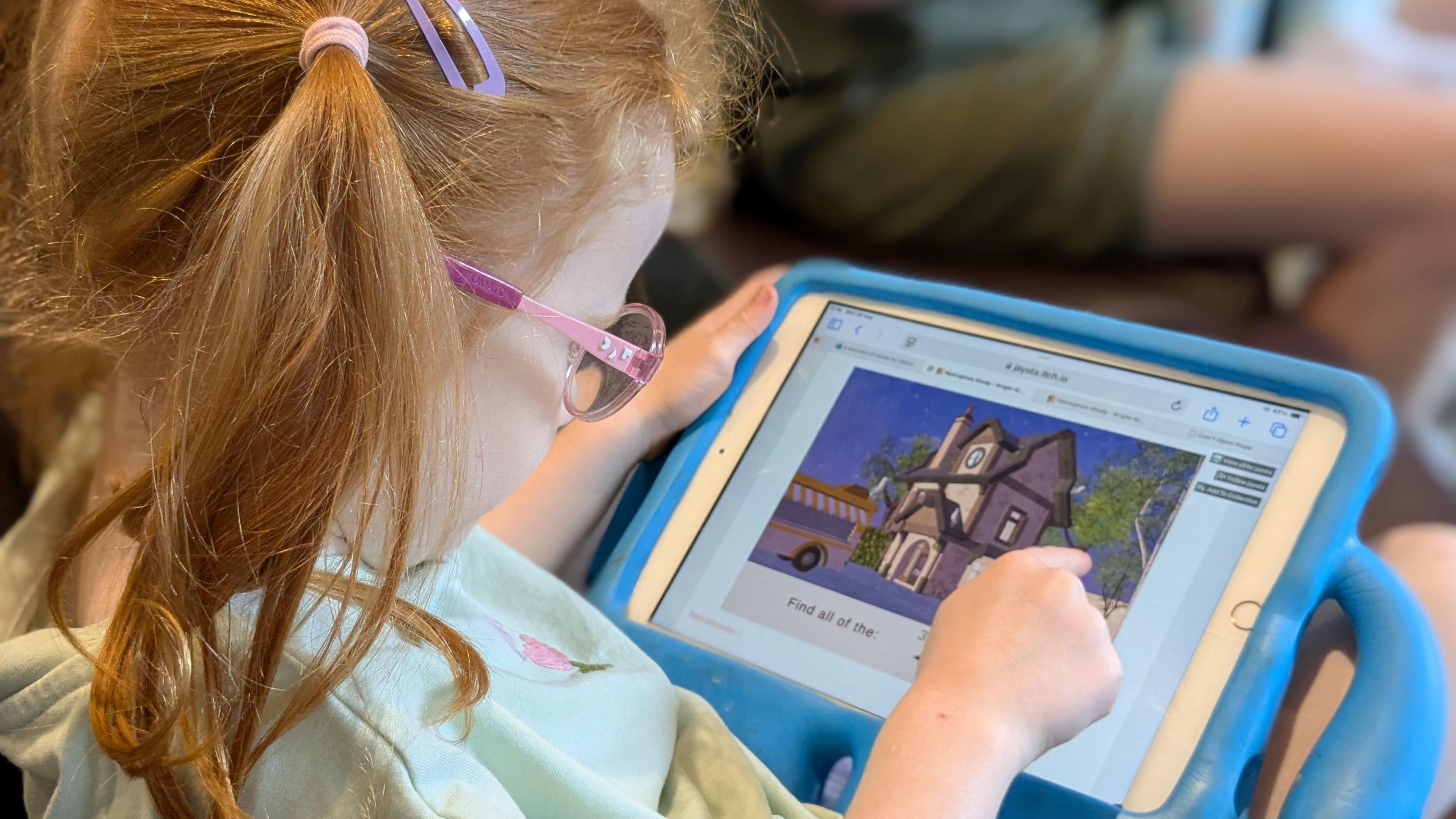
Five-year-old Nevaeh has a rare condition that makes her eyes move uncontrollably
- Published
A five-year-old girl with a rare eye condition is taking part in a pioneering trial using computer games in the hope of improving children's vision.
Nevaeh, from Jersey, and her eight-month-old sister, Novah, cannot fully open their eyes in sunlight and experience rapid, uncontrollable eye movements - known as nystagmus.
She is now trialling a series of games, developed with the University of Southampton, which track eye movements and assess whether her glasses are helping improve her eyesight.
Her mother Carly said: "I've felt at such a loss about how Nevaeh will grow up and deal with it all, but now I feel full of hope that her eyesight could be improved."
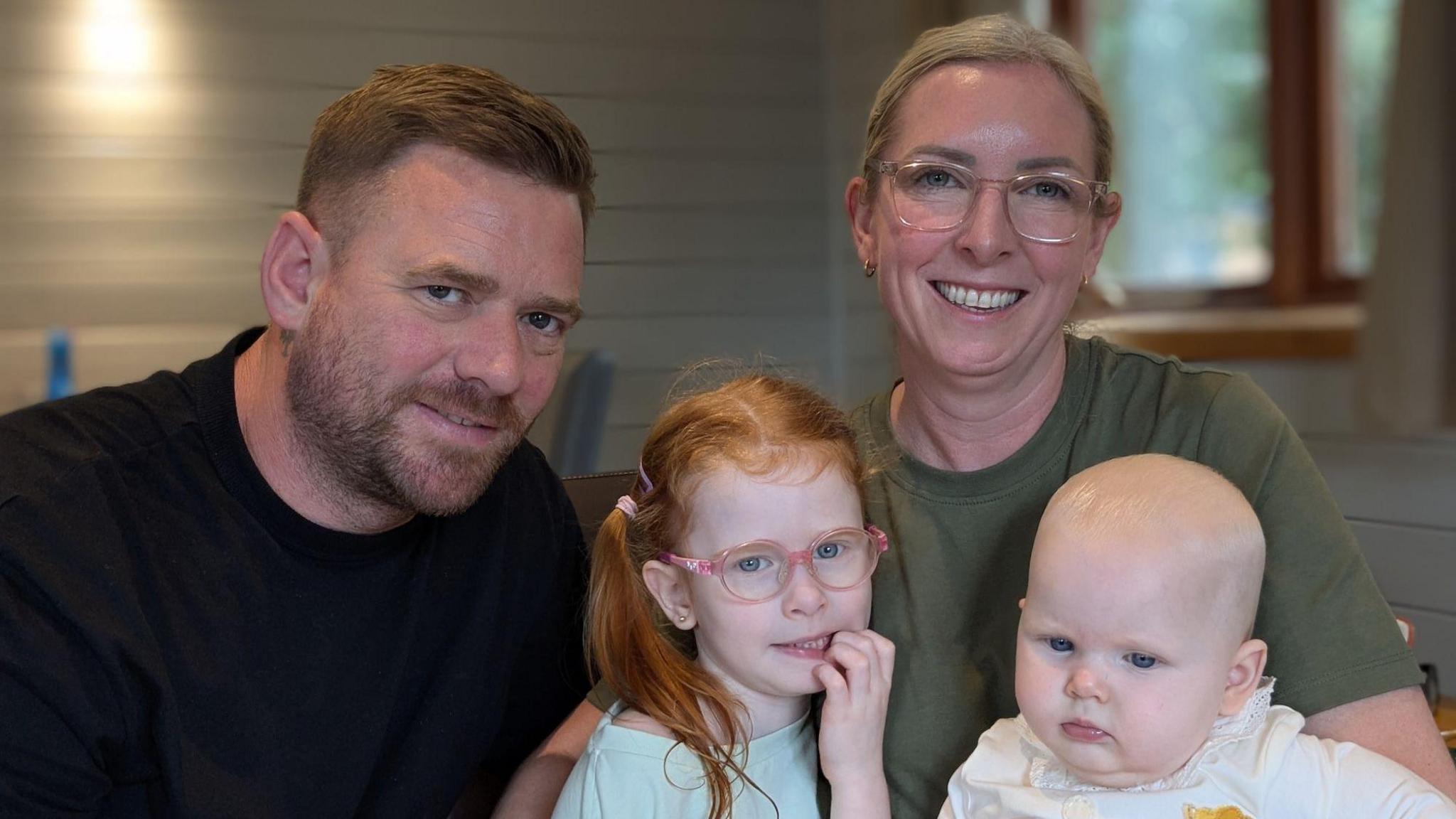
Nevaeh's eight-month-old sister Novah also has albinism and nystagmus
Nevaeh and her sister both have albinism - an inherited condition that affects the production of melanin, the pigment that colours the skin, hair and eyes, and which can lead to vision problems.
Nevaeh's condition affects 24 people in every 10,000, according to a 2009 study by the University of Leicester, external.
Dr Jay Self, from the University of Southampton, is leading the eyesight trial and said while there was no current cure for nystagmus, there was "a range of supportive treatments" such as glasses, medication and eye surgery.
He added that new treatments were being developed but that traditional eye tests, such as static letter charts, meant it was hard to measure their effectiveness.
"[They] don't simulate real-life situations at all," Dr Self said.
"In the real world, when crossing a road, for example, everything is moving and we need to see and recognise things quickly.
"These games allow us to measure how quickly someone can see, as well as how clearly."
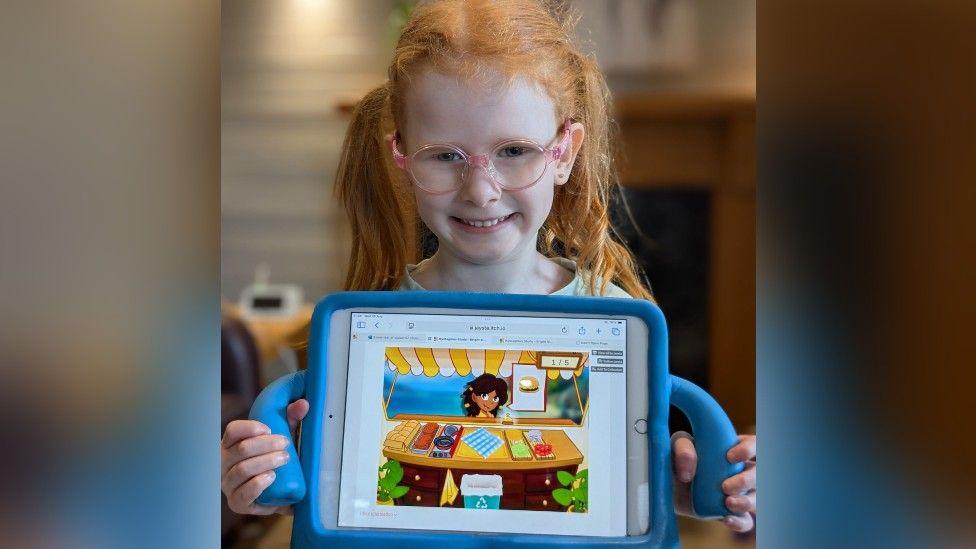
The computer games track eye movements, unlike traditional eye tests
Carly said she first noticed Nevaeh's eyes were "quivering" when she was eight weeks old, while the family was living in Dubai, but was told that it was "just the eyes developing".
"I just knew something was wrong," she said.
"I could see that her eyes were moving from side to side and she couldn't focus on anything - I was so worried she was blind."
She said it was only when the family moved back to Jersey that they got "the answers we needed".
Carly now hopes that by taking part in the trial it will improve Nevaeh's eyesight as she enters Year 1 at school.
One game - which was developed by university spin-out company Nucleolus Software - allows children to make a burger in a virtual fast-food kitchen.
Children check orders and pick the ingredients, as well as finding hidden objects, with the game measuring how quickly the child sees something.
The trial is one of the first projects being run by the new £100m Institute for Medical Innovation, external, a joint initiative between the University of Southampton and University Hospital Southampton NHS Foundation Trust.
Carly said she also wants to raise awareness of nystagmus to help other families understand it, adding that awareness was "a step towards acceptance".
"I hope by talking about it, people will begin to understand a little better what albinism is," she said.
"I want my girls to be empowered by their albinism, not hindered by it."
Follow BBC Jersey on X, external and Facebook, external. Send your story ideas to channel.islands@bbc.co.uk, external.
- Published23 June 2024
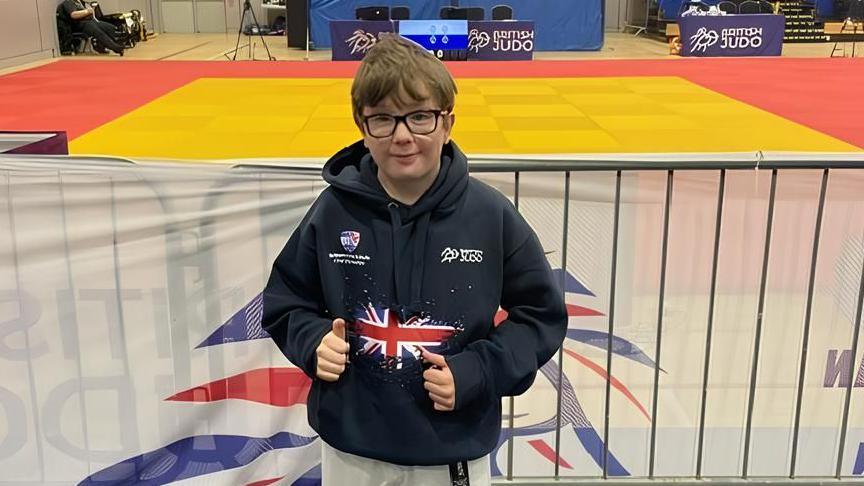
- Published26 June 2017
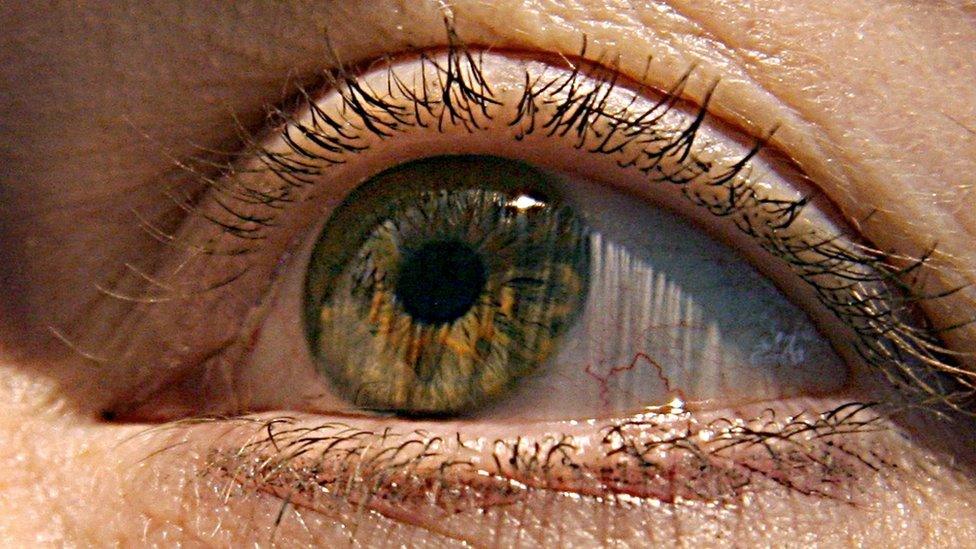
- Published11 January 2014